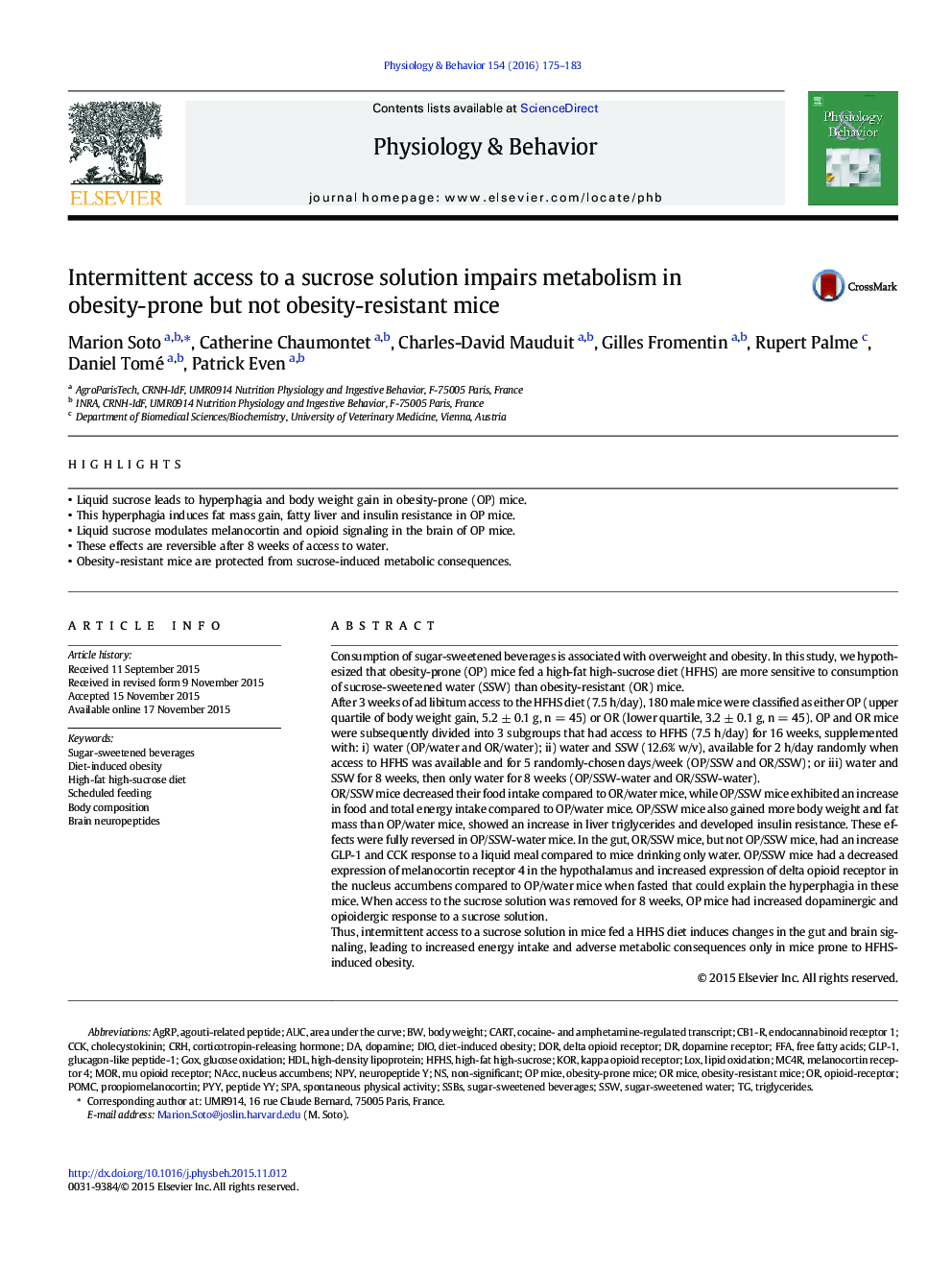| کد مقاله | کد نشریه | سال انتشار | مقاله انگلیسی | نسخه تمام متن |
|---|---|---|---|---|
| 5923159 | 1571164 | 2016 | 9 صفحه PDF | دانلود رایگان |
- Liquid sucrose leads to hyperphagia and body weight gain in obesity-prone (OP) mice.
- This hyperphagia induces fat mass gain, fatty liver and insulin resistance in OP mice.
- Liquid sucrose modulates melanocortin and opioid signaling in the brain of OP mice.
- These effects are reversible after 8Â weeks of access to water.
- Obesity-resistant mice are protected from sucrose-induced metabolic consequences.
Consumption of sugar-sweetened beverages is associated with overweight and obesity. In this study, we hypothesized that obesity-prone (OP) mice fed a high-fat high-sucrose diet (HFHS) are more sensitive to consumption of sucrose-sweetened water (SSW) than obesity-resistant (OR) mice.After 3 weeks of ad libitum access to the HFHS diet (7.5 h/day), 180 male mice were classified as either OP (upper quartile of body weight gain, 5.2 ± 0.1 g, n = 45) or OR (lower quartile, 3.2 ± 0.1 g, n = 45). OP and OR mice were subsequently divided into 3 subgroups that had access to HFHS (7.5 h/day) for 16 weeks, supplemented with: i) water (OP/water and OR/water); ii) water and SSW (12.6% w/v), available for 2 h/day randomly when access to HFHS was available and for 5 randomly-chosen days/week (OP/SSW and OR/SSW); or iii) water and SSW for 8 weeks, then only water for 8 weeks (OP/SSW-water and OR/SSW-water).OR/SSW mice decreased their food intake compared to OR/water mice, while OP/SSW mice exhibited an increase in food and total energy intake compared to OP/water mice. OP/SSW mice also gained more body weight and fat mass than OP/water mice, showed an increase in liver triglycerides and developed insulin resistance. These effects were fully reversed in OP/SSW-water mice. In the gut, OR/SSW mice, but not OP/SSW mice, had an increase GLP-1 and CCK response to a liquid meal compared to mice drinking only water. OP/SSW mice had a decreased expression of melanocortin receptor 4 in the hypothalamus and increased expression of delta opioid receptor in the nucleus accumbens compared to OP/water mice when fasted that could explain the hyperphagia in these mice. When access to the sucrose solution was removed for 8 weeks, OP mice had increased dopaminergic and opioidergic response to a sucrose solution.Thus, intermittent access to a sucrose solution in mice fed a HFHS diet induces changes in the gut and brain signaling, leading to increased energy intake and adverse metabolic consequences only in mice prone to HFHS-induced obesity.
Journal: Physiology & Behavior - Volume 154, 1 February 2016, Pages 175-183
